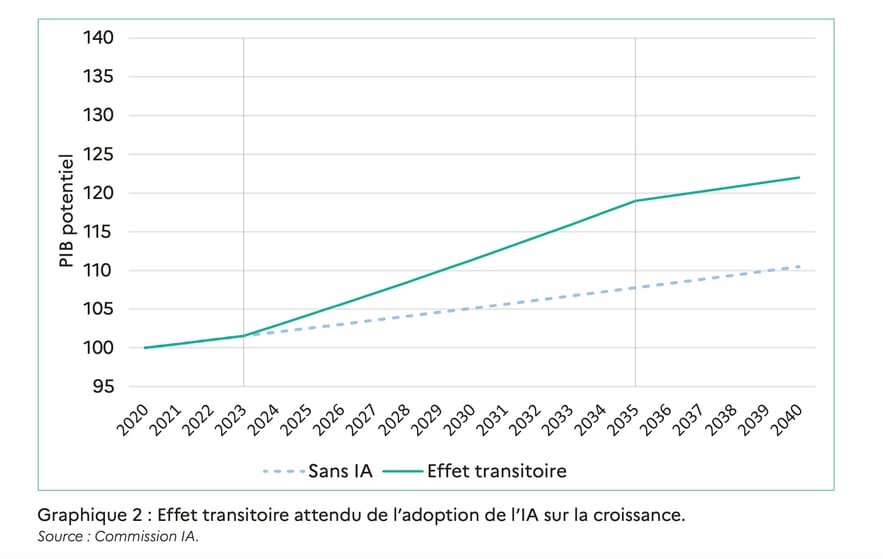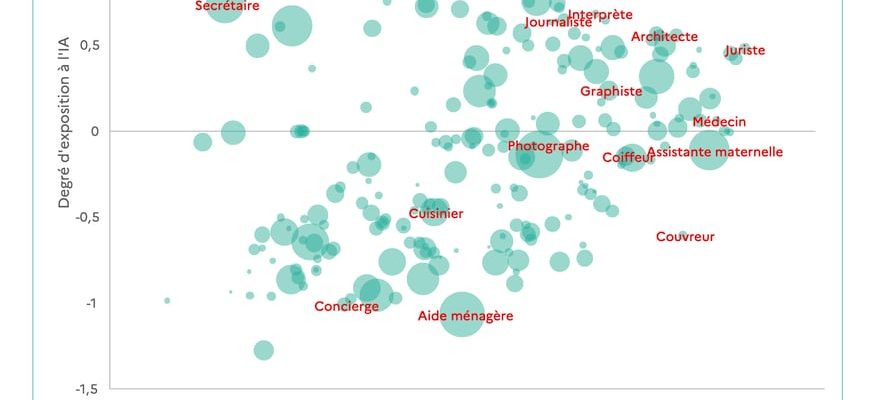Discreet, he never leaves his post. He knows everyone’s needs, provides a helping hand when requested, and takes care of tasks that others are reluctant to do. Without ever complaining. This “ideal” colleague obviously does not exist. At least, not physically. The appearance of ChatGPT, a general public generative artificial intelligence, in November 2022, however, made the emergence of this type of virtual assistant plausible, versatile and available 24 hours a day within a company or an administration . In addition to ChatGPT, which now has a “business” version, Microsoft, Google, Salesforce, and in France companies such as Mistral, Dust or LightOn, are also developing professional solutions. In total, several hundred LLMs, these large language models underlying generative AI applications like ChatGPT, are spreading around the world. The latter excel in document synthesis, translation into dozens of languages, and generation of texts, images, voices or videos. And if their reliability is not impeccable in the search for knowledge or writing computer code, they continue to improve. So many tasks that we thought were reserved for this strange fauna that haunts open spaces: white-collar workers.
In France, industrial giant Alstom uses generative AI internally. She quickly provides her colleagues with information previously contained in thick binders. Those concerning the manufacture of a train, “include hundreds of thousands of documents”, recalled Guillaume Rabier, in charge of IT solutions in the group, during a recent event attended by L’Express. In insurance, Alan, who receives thousands of healthcare invoices per month, historically transcribed them by hand. The AI now takes care of it. “What took a day is now done in a few seconds,” explains Jean-Charles Samuelian-Werve, its CEO. A time saving which allowed Alan to offer his customers reimbursement in less than a minute. In the interim, the Adecco group has built several AIs, one of which helps job seekers create a CV via simple voice instructions. “It has already been used by 45,000 people,” notes Hélène Jonquoy, the director of innovation. Since last summer, the public service has been testing a user response tool which has reduced the average waiting time from seven to three days. The list of use cases is not exhaustive.
Stéphane Roder, head of the AI Builders agency, which advises several large CAC 40 firms, notes in the majority of experiments “huge productivity gains, with double-digit percentages”. From then on, he informs, “the discovery phase is passing. Final products are being developed.” This move to scale is observed in particular in customer relations and after-sales service, on the front line of this revolution, with AI being able to answer simple questions autonomously. The fintech Klarna recently claimed that AI replaced more or less 700 telephone advisors, with a cost reduction estimated at 40 million euros. For humans remaining in the loop, Bouygues Telecom provides generative AI to its advisors, providing them with “a summary of the conversation with the customer”, indicates Christophe Lienard, head of innovation for the group. “This saves time with each new phone call, because the employee has easy access to previous exchanges.”
Traps to avoid
What consequences will this technology have on employment in general? The question naturally emerged. The company Onclusive, a media monitoring service, announced loudly last September the dismissal of more than 200 employees, now replaceable by AI. The phenomenon of job destruction should nevertheless be limited in volume, and restricted to a handful of sectors, in culture, communication or even commerce. “Studies indicate that AI will rather allow less qualified workers to improve their skills rather than replacing them,” wants to reassure Marina Ferrari, the new Secretary of State for Digital. At the same time, generative AI will also create many jobs, in data science among others. As for groups that retain their workforce by adding a dose of AI, they will be able to attract consumers with more sophisticated products, reduced waiting times, etc. Which risks forcing their competitors to follow suit over time. . A virtuous circle. It still remains to be carried out with finesse transformation of professions. Work is an eminently complex science, recalls Yann Ferguson, sociologist at the National Institute for Research in Digital Sciences and Technologies (Inria) and scientific director of the ministerial program LaborIAwhich studies the effects of the introduction of AI at work: “If we take away the tasks that are a priori simple and of low value from an employee, those that we will rather reserve for AI, we can take away from them also the capacity to accomplish more complex tasks, because there can be a chaining effect between them.”
Selection of professions likely or not to be replaced by generative AI.
© / Report of the interministerial committee on generative artificial intelligence
Companies embarking on generative AI also need to be aware of a few pitfalls. “The ChatGPT phenomenon gave the impression that it knew how to do everything. This is false. To obtain very precise and useful things, you have to rework on the data, add technological bricks”, underlines Stéphane Roder, at AI Builders . Be wary, in short, of a so-called “magical” power. The quality is not always there. The car manufacturer Chevrolet, for example, launched a chatbot that engaged in promotions without authorization and began to recommend… Teslas! The delivery company DPD, for its part, urgently suspended its chat agent who insulted customers. A lesson: the first models accessible “off the shelf”, via cloud services, must necessarily be adapted to the needs as well as the culture of the company, in order to prove effective.
An unprecedented adoption
Final parameters must be taken into account for generative AI to benefit societies. “First of all, its cost, especially if companies want to generate their AI models and run them on their own servers. Data confidentiality is also crucial,” points out Rand Hindi, co-founder of Zama, a company specializing in security of blockchain and AI applications. Especially when using non-sovereign solutions. Some AIs record their users’ questions to train on them. Revealing all the secrets of your business to them without precaution is risky. “And when you make AI available to different departments in your company, you have to think carefully about how you partition the data,” confides a professional in the sector. Otherwise, everyone risks being able to access information reserved for management or HR.

The potential effects of generative AI on French GDP
© / Report of the interministerial committee on generative artificial intelligence
“It is also urgent to develop training programs so that everyone can properly use the tools. “Prompting” – the way of formulating requests to the AI – is comparable to a conversation with a human. If we look at If you express it poorly, you will get a bad answer,” says Rand Hindi. Finally, Christophe Liénard, from Bouygues, also president of Impact IA, a collective committed to ethical and responsible artificial intelligence, focuses on the ecological repercussions. “It is necessary to turn to smaller, less energy-consuming models when possible,” he argues.
The potential of generative AI in any case arouses enthusiasm, while France is currently lacking in productivity (a drop of 4.6% between 2019 and 2023, according to INSEE), and growth – a modest 1% in 2024. Will this technology reshuffle the cards? The first estimates are tempting. “AI could save France one point of GDP per year” over the coming decade, reveals Marina Ferrari. The report of the interministerial committee on generative artificial intelligence, submitted on Wednesday March 13, gives a range of 250 to 420 billion euros in financial impact by 2030, “i.e. of the same order of magnitude as current activity of the industry as a whole. “The increase in productivity can only be positive, and it could generate a new form of income redistribution,” assures Antonin Bergeaud, professor of economics at HEC. But with the advent of computing in the early 1990s, such gains were not seen until one to two decades after the spread of computers, moderate a recent parliamentary presentation, indicating that it is therefore “not written that those of generative AI are faster”. There are, however, good reasons to hope that their effects, this time, will be felt more quickly.
© / ART PRESS
Because ChatGPT has experienced the most dramatic adoption curve in history. Five days to reach one million users; a hundred times more log in every week now. Generative AI is ultimately only a natural evolution of AI, which has existed for almost seventy years and is fueled by algorithms governing social networks, Netflix, and a good number of software programs. Getting started was therefore easier. Especially since an important technical barrier has since been lifted: we now give instructions to the machine in natural language, in French in particular. From then on, “it was the company’s employees who brought generative AI to their workplace, before their management. Sometimes under the radar,” explains Yann Ferguson. A trend also observed by Adecco, which took advantage of the launch of its generative AI to survey its teams: “65% of employees told us that they were already using this type of tool,” indicates Hélène Jonquoy. It’s hard to resist a groundswell.
.
